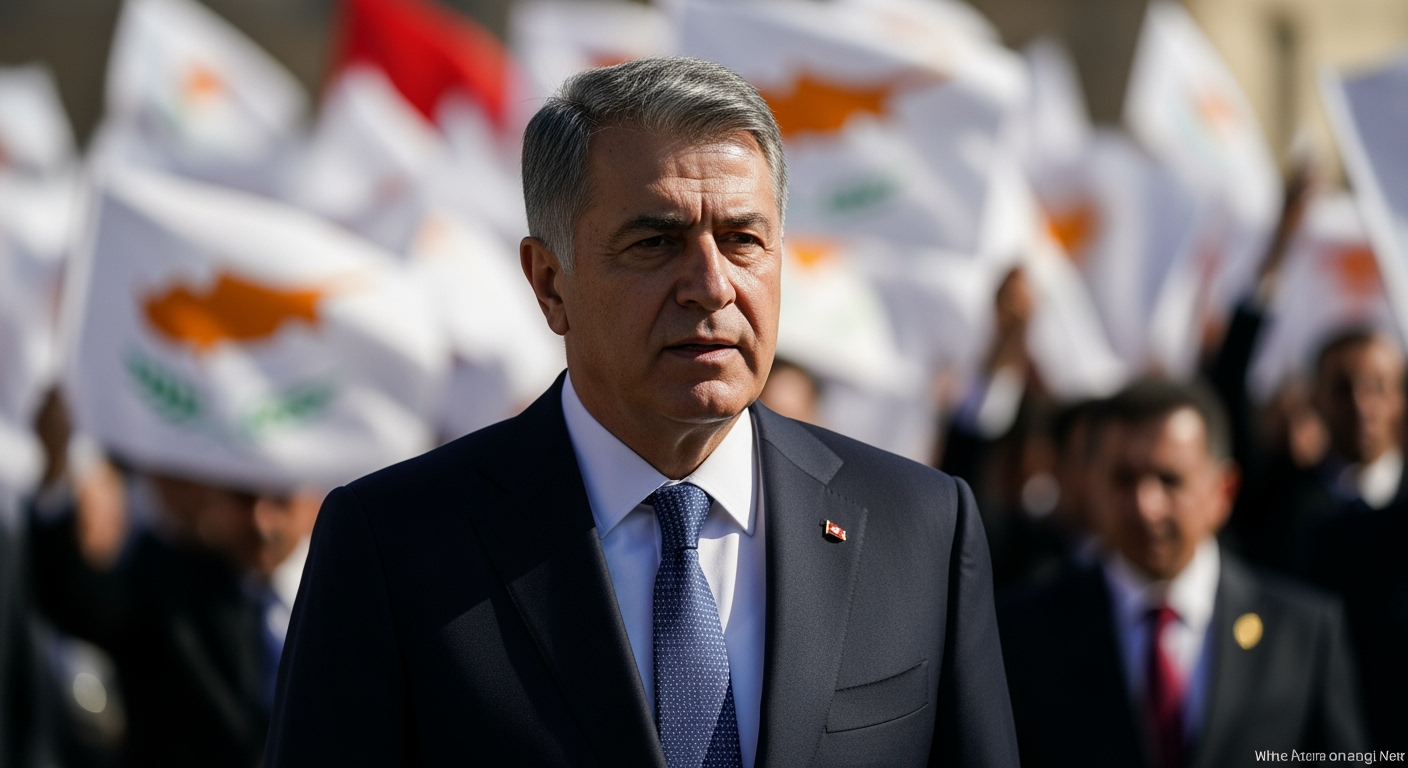Related Articles

Turkish Cypriots Elect Erhürman in Landslide, Sending Complex Signals to Ankara

China Navigates Critical Economic Crossroads with Ambitious New Five-Year Plan





SKOPJE, North Macedonia – North Macedonia's political landscape has been dramatically reshaped by a persistent dilemma: the tantalizing, yet increasingly distant, promise of European Union membership. Recent election cycles, particularly the pivotal 2024 parliamentary and presidential votes, reveal a nation grappling with profound frustration, where high-stakes geopolitical issues surrounding EU accession have largely eclipsed pressing local concerns, from economic hardship and corruption to youth emigration and healthcare. The resounding victory of the conservative opposition in 2024 underscores a public weary of concessions and perceived stagnation on its path toward Brussels, prompting a critical reassessment of the country's future direction.
North Macedonia's journey toward the European Union has been a protracted saga marked by significant national compromises, only to be met with successive hurdles. After resolving a decades-long naming dispute with Greece in 2018—a monumental concession that saw the country rename itself from Macedonia to North Macedonia—the path to NATO membership proceeded swiftly, and the EU gave its formal approval to begin accession talks in March 2020. However, this progress proved short-lived. In November 2020, neighboring EU member Bulgaria imposed a veto, effectively blocking the official start of accession negotiations.
Bulgaria's objections are rooted in disputes over history, language, and the recognition of a Bulgarian minority within North Macedonia's constitution. Sofia demands official acknowledgment of a shared history, changes in the formulation describing the Macedonian language, and the inclusion of Bulgarians as a constituent people in North Macedonia's constitution. In 2022, a "French proposal" was put forward to break the impasse, integrating these bilateral demands into North Macedonia's negotiation framework. This proposal made constitutional changes, specifically recognizing the Bulgarian community, a prerequisite for opening further negotiating chapters. While the previous center-left government (SDSM) accepted the proposal, it lacked the parliamentary majority needed to enact the constitutional amendments. This continuous embedding of bilateral disputes into the formal EU accession process, a situation unprecedented for other candidate countries, has created a sense of Sisyphean struggle for North Macedonia.
The deep-seated frustration over the stalled EU integration process significantly influenced the outcomes of the 2024 presidential and parliamentary elections. Voters, disillusioned by the slow pace of reform and the lack of tangible progress despite national concessions, delivered a historic rebuke to the incumbent Social Democratic Union of Macedonia (SDSM). The conservative VMRO-DPMNE, campaigning on a platform that prioritized national sovereignty and a more skeptical stance toward immediate constitutional changes dictated by external demands, secured a dominant victory.
VMRO-DPMNE's candidate, Gordana Siljanovska-Davkova, became North Macedonia's first female president, and the party itself won a significant number of seats in parliament, positioning it to form the next government. This shift represented a "protest vote" against the previous administration, which had made intensive efforts to join the EU but was seen as failing to deliver on its promises. The core message from the new government, led by Prime Minister Hristijan Mickoski, is that constitutional amendments should only occur if Bulgaria guarantees North Macedonia's EU membership without additional conditions. This stance directly challenges the framework established by the French proposal, suggesting a potential collision course with its EU neighbors, Greece and Bulgaria.
Amidst the high-stakes political drama surrounding EU accession, the everyday concerns of North Macedonian citizens have often been relegated to the background. Political analysts note that critical domestic issues such as healthcare, economic stability, alarmingly high youth emigration rates, environmental challenges, and the perennial fight against corruption consistently take a backseat during election campaigns.
The inability of successive governments to deliver on the promise of EU integration, combined with persistent domestic problems, has fueled a pervasive sense of disillusionment among the populace. For instance, the 2021 local elections also saw a major defeat for the then-ruling SDSM, leading to the resignation of Prime Minister Zoran Zaev, largely due to public disappointment over persistent corruption and the failure to advance EU membership despite the name change and negotiations with Bulgaria. Voters perceive a disconnect between the extensive political energy spent on external demands and the limited attention given to tangible improvements in their daily lives. This neglect of local governance and quality of life issues contributes to the cycle of frustration, impacting voter turnout and the overall credibility of political institutions.
The ascent of a nationalist government in North Macedonia presents a complex and precarious path forward for the country and its relationship with the European Union. While the new government officially supports EU membership, its firm stance against constitutional changes under the current terms means that North Macedonia's EU integration will likely remain at a standstill for the foreseeable future. This could lead to increased political polarization domestically and a further strain on relations with neighboring Bulgaria and potentially other EU members.
The EU, for its part, faces a challenge to its enlargement policy, with concerns that the bilateralization of accession criteria undermines the merit-based approach and its own credibility in the Western Balkans. The decoupling of Albania from North Macedonia in the EU accession path in September 2024 further highlights the distinct obstacles North Macedonia faces due to its dispute with Bulgaria. If a credible and mutually acceptable path cannot be found, the risk persists that North Macedonia could lose many more years in the "EU waiting room," potentially leading to further democratic backsliding and increased geopolitical instability in a region already prone to external influences.
The dilemma for North Macedonia is acute: a strong public desire for EU membership exists, yet there is growing resistance to the terms being imposed. The outcome of this delicate balance will not only determine North Macedonia's trajectory but also serve as a crucial test for the EU's commitment to its enlargement vision for the Western Balkans.